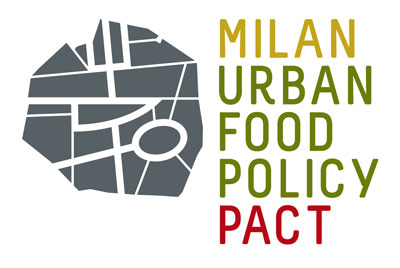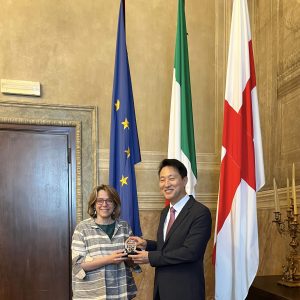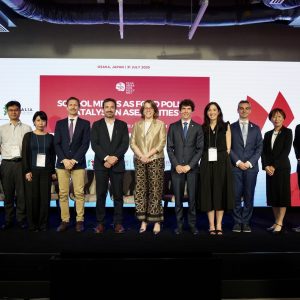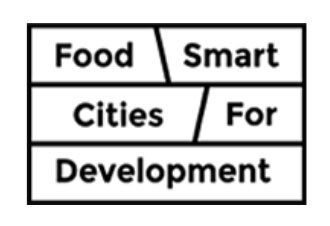Earlier this year, the cities of Liège and Rennes were welcomed in Milan for an in-depth exploration of the city’s comprehensive school meals programme and urban food policy. Building on this milestone, the recent study visits to Liège and Rennes in July 2025 mark the second step of an ongoing City-to-City Exchange supported by the European Urban Initiative (EUI) and the Milan Urban Food Policy Pact (MUFPP). This exchange process aims to strengthen the local food systems of the participating cities through continuous knowledge sharing, pilot actions and collaborative learning.
Learning from Liège: Local, Healthy, and Inclusive
From 1–3 July 2025, the delegation met in Liège to discover the city’s ambitious approach to providing healthy, local, and almost entirely organic meals to municipal schools and nurseries. Liège, in partnership with ISoSL (Intermunicipal for Specialized Care), delivers approximately 4,000 meals daily, including 3,000 for schools and 1,000 for nurseries. This is achieved through a holistic approach combining smart procurement, strong support for local farmers, innovative logistics and the active involvement of the community. The group visited the Pôle agroalimentaire circuit court, a pioneering local agri-food hub co-developed with the Ceinture Aliment-Terre Liégeoise (CATL). By pooling storage, processing and distribution infrastructure, this hub ensures a reliable supply of fresh, seasonal produce to collective kitchens while creating economic opportunities for local producers. A visit to the Maison de l’Alimentation durable et inclusive de Liège (MAdiL) showcased how food education and community projects make sustainable food accessible to all, especially vulnerable communities. Liège’s model demonstrated the power of collaboration across governance levels, local producers, schools, and citizens to make the food system fairer and more resilient.




Discovering Rennes: A City Committed to Sustainable Catering
From 9–11 July 2025, the delegation continued their exchange in Rennes, where they explored the city’s extensive efforts in sustainable school catering and urban food policy. The visit included guided tours of Rennes’ central kitchen during production hours, presentations on procurement strategies prioritising local and organic products, and initiatives to reduce food waste. Participants also learned about Rennes’ plans for a new municipal cooking school and a sustainable food card project, both designed to further embed sustainability into daily life. Site visits ranged from the Terres de Sources label, which promotes local sourcing, to the city’s organic market and innovative urban agriculture projects. The delegation enjoyed shared meals with municipal staff and children, highlighting the importance of education and community engagement in building a food culture that values health, sustainability and inclusion.





Building Stronger Food Systems Together
These visits have reinforced ties between Milan, Liège and Rennes, helping the cities share inspiring practices on healthy eating, sustainable procurement, waste prevention and local supply chains. Through open dialogue, site visits and practical exchange, the cities have identified key enablers and challenges to implementing effective, inclusive and resilient food systems. The City-to-City Exchange will continue in the coming months with further meetings, joint workshops, and the co-design of pilot projects to put shared ideas into action. These collaborations show how the MUFPP community can turn shared commitments into tangible impact, bringing local governments together to build fairer, healthier and more sustainable food systems for all citizens.













